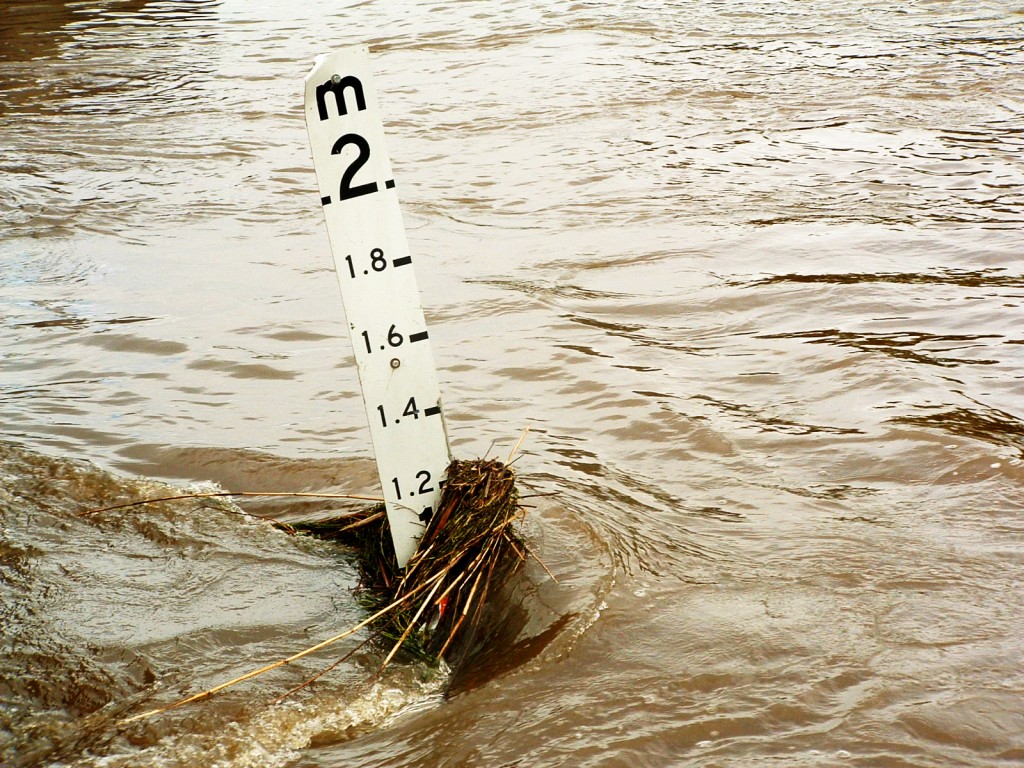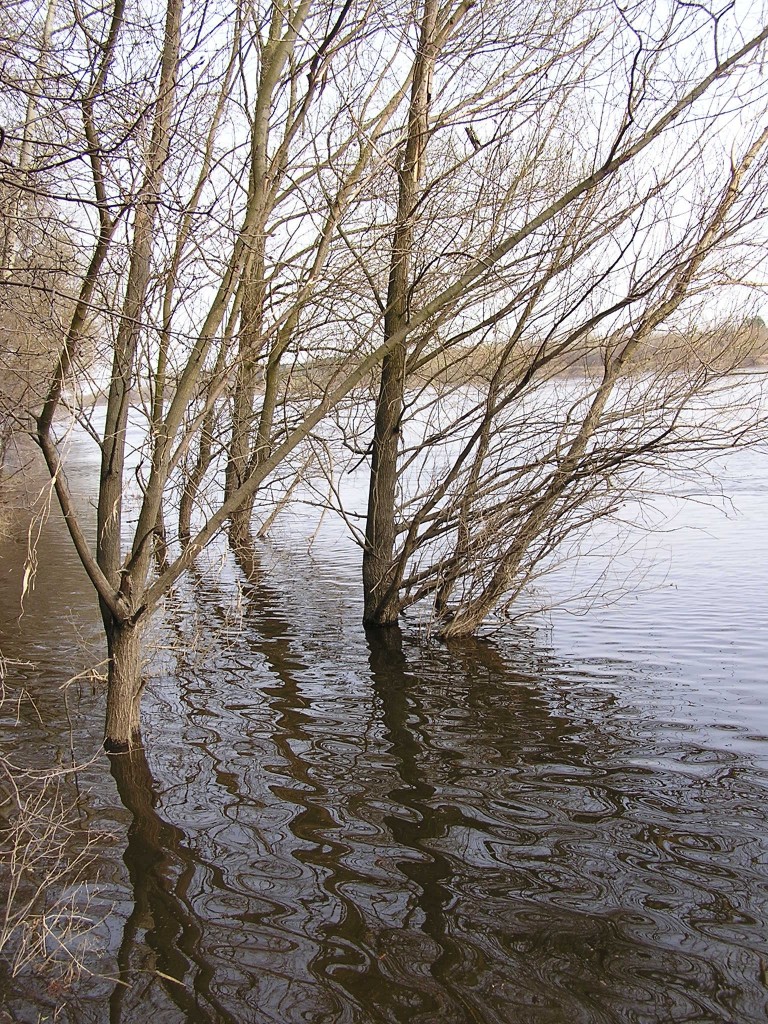What is a flash flood? Quite literally, it’s a flood that occurs in a flash. That’s kind of a cop-out answer though, so let’s try to define it a little better.
A flood (a naturally-occurring one, at least) is any high flow or overflow of any body of water – creeks, rivers, ponds, reservoirs…you get the idea. A flash flood a quick-rising overflow of water that happens with surprisingly short notice.
Flash floods are usually caused by sudden heavy rainfall – you know, like one of those high country storms that come and go so often here in the Rocky Mountains. Conditions are right for flash floods when one of those storms dumps a lot of rain in a short amount of time over the same area.
Flash floods can also occur from heavy snow melt or ice jams, both of which are also common in the Rocky Mountains. Flash floods can also be caused by wildfires (yet another common occurrence here in the Rockies – notice a trend?). The scorched earth after a fire lacks the plant growth to absorb rainwater or slow runoff. If heavy rains fall on land damaged by wildfire, the rainwater can run dangerously fast downhill and downstream, as has happened recently in parts of Colorado.
A flash flood can cause tremendous amounts of damage, often within a short amount of time. Flash flood water rises high and fast – this is perhaps a flash flood’s most dangerous trait. In a matter of seconds a flash flood can overtake humans, cars, properties, trees, boulders – virtually anything in its path.
Although flash floods are swift and destructive, the threat of a flash flood can also be avoided. If there is a flash flood warning in your area, stay away from bodies of water and low-lying areas. If you witness a flash flood, don’t try to outrun it downstream. Instead, seek higher ground as quickly as possible. Never approach a flash flood, and certainly don’t play, fish, swim in, or try to cross an overflowing waterway. If floodwater has overtaken a road or bridge, don’t try to drive through the water.
When building property, avoid building in a floodplain. If building in a floodplain is unavoidable or you already own property in a floodplain, it is wise to elevate and reinforce your home, if possible.
If you have suffered flash flood damage to your property, contact Rocky Mountain Catastrophe. We can remove excess water, dry out the entire structure, and restore your property to as good as new. We also offer contents restoration services, so your prized possessions can be saved from flood damage as well.
To contact Rocky Mountain Catastrophe, call (970) 722-7744 or email [email protected].
For further reading on flash floods, check out more facts from weather.com.



